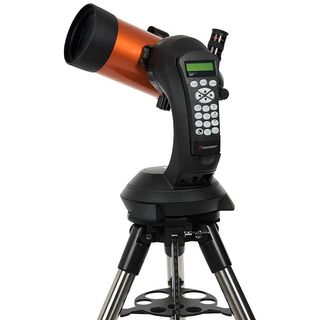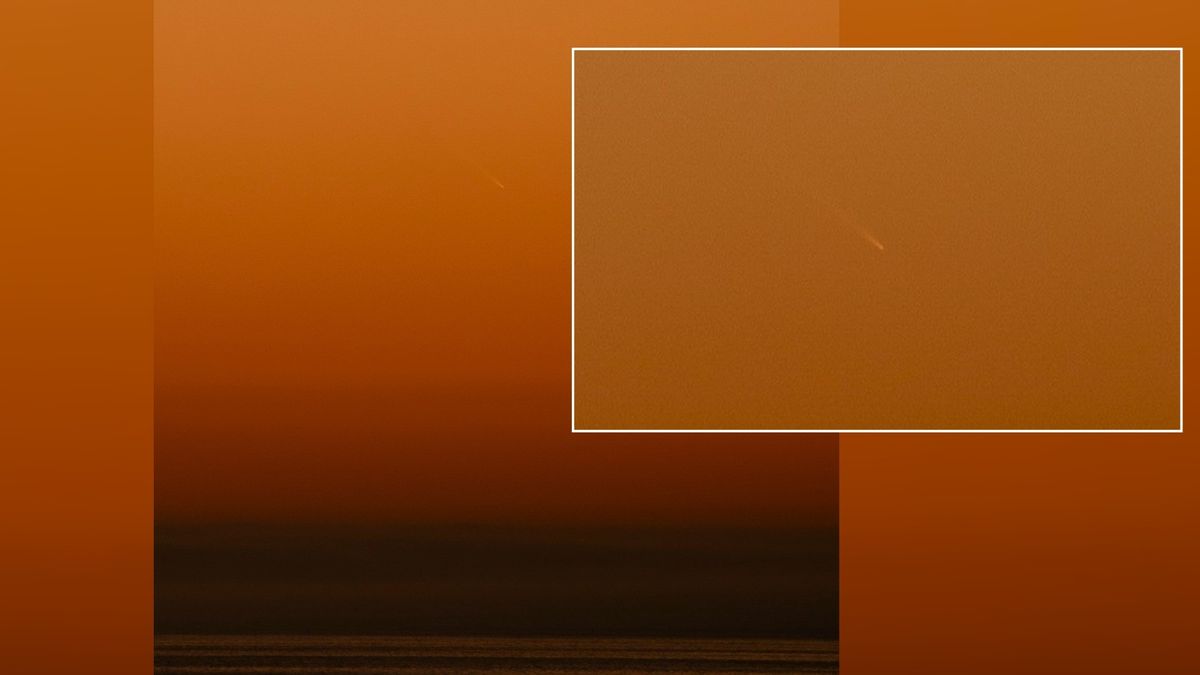In a race against time, clouds and the setting sun, photographer Josh Dury captured this dramatic photograph of Comet C/2024 G3 (ATLAS) at dusk on Jan. 15.
The comet is a rare visitor to our cosmic neighborhood, orbiting our sun every 160,000 years or so. It reached peak brilliance this week after surviving its closest approach to the sun — perihelion — passing within 8.7 million miles (14 million km) of our star on Jan. 13.
"This comet as it stands, is only possible to photograph during the glare of the sun," Josh Dury told Space.com. "Being near the apparent brightness of Venus makes it a possible target at dusk; after sundown."
TOP TELESCOPE PICK:

Want to see comets in the night sky? The Celestron NexStar 4SE is ideal for beginners wanting quality, reliable and quick views of celestial objects. For a more in-depth look, see our Celestron NexStar 4SE review.
On the afternoon of Jan. 15, Dury spotted clear skies overhead and thought he'd try his luck at photographing the 160,000-year spectacle, but it was far from straightforward. The chase was on.
Initially, Dury's comet hunting venture began close to home in Somerset but heavy mist and fog covered the Mendip Hills, so Dury was forced to head elsewhere.
"I then travelled Bristol direction to find the horizon was still covered in cloud," Dury explained.
Undeterred, Dury continued the hunt. But with dwindling daylight, the chase was on.
Dury's luck finally changed when he spotted a clearing near Severn Beach, a village on the Severn Estuary in South Gloucestershire, England. "It was hit or miss to get this photograph; time was of the essence and running out fast," Dury said.
"Admitting I shot this one blind. The sun setting around 20 minutes before. It was not an easy catch. But there on the back of the LCD monitor, the comet made its presence known."

Dury's dramatic photograph not only celebrates the beauty of Comet G3 ATLAS but also highlights the challenges of capturing fleeting cosmic events.
"Five-minutes later, the sea fog (photographed below) blew the whole scene into total and utter smog. Was this once in a lifetime photograph luck or what?" Dury said.
Want to hunt comets on your own? Be sure to look at our guides on the best telescopes and best binoculars to help you find the optics you need. And if you want to try your hand at taking your own comet pictures, check out our guide on how to photograph comets.

.jpg) 2 hours ago
1
2 hours ago
1

 English (US)
English (US)